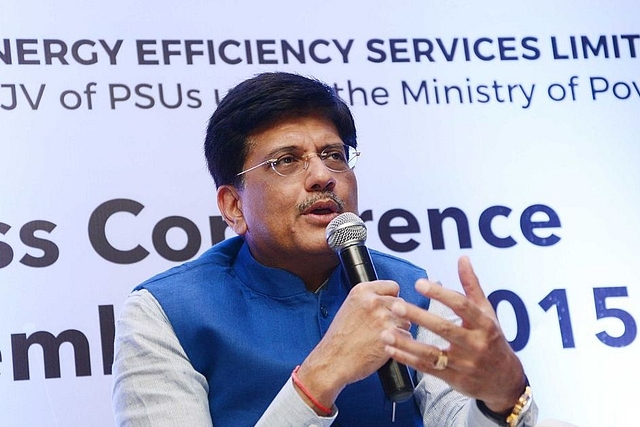
After Withdrawing From RCEP Agreement, India To Review Lopsided Pacts With ASEAN Countries To Secure Better Deals
Weeks after pulling out of proposed mega free trade pact RCEP, India would review lopsided trade agreements with Association of Southeast Asian Nations (ASEAN) and secure better deals.
Making a statement in Rajya Sabha over India's position in the Regional Comprehensive Economic Partnership (RCEP), Commerce Minister Piyush Goyal said that India's free trade agreements (FTAs) with ASEAN and other countries has not benefited to its expected potential.
He cited growing trade deficit with ASEAN countries during 2010-11 until 2018-19 to state that the trade pacts had been asymmetrical.
"A major reason has been that India gave much larger market access to some of these countries but received less in return. For example, in the ASEAN-India FTA (AIFTA) we enabled greater market access by eliminating tariffs on 74.4 per cent lines, however, some of the ASEAN countries eliminated tariffs on only 50.1 per cent and 69.7 per cent lines," the Minister said.
ASEAN is an inter-governmental organization comprising Indonesia, Malaysia, Philippines, Singapore, Thailand, Brunei, Laos, Myanmar, Cambodia and Vietnam. It is primarily aimed at promoting economic growth and regional stability among its members.
The RCEP is a proposed free trade agreement (FTA) between the 10-member states of the ASEAN -- Brunei, Cambodia, Indonesia, Laos, Malaysia, Myanmar, the Philippines, Singapore, Thailand, Vietnam -- and its six FTA partners China, Japan, India, South Korea, Australia and New Zealand.
Commerce Minister Goyal on Tuesday (10 December) said the trade deficit with ASEAN from 2010-11 until 2018-19 increased more than four times from $5 billion to $21.8 billion.
"In fact the merchandise deficit with all the RCEP countries increased more than 9 times from $7.1 billion in 2003-04 to $65.1 billion in 2013-14," the Minister said in Rajya Sabha.
In case of China alone, India's trade deficit rose 33 times, from $1.1 billion in 2003-04 to $36.2 billion in 2013-14. Not surprisingly, India in early November pulled out of the mega trade deal.
While Goyal termed the pull-out a bold decision under the leadership of Prime Minister Narendra Modi, senior Congress leader in the House Jairam Ramesh said that it was a political necessity given the opposition to it from across the political spectrum.
"Given the political reality it was inevitable," Ramesh said.
The former Minister also pointed out the India-ASEAN Ministerial statement and said that what the Minister Goyal had said now were two contrary interpretations.
"Nowhere, the statement provides for the type of review that the Hon'ble Minister has alluded to," Jairam Ramesh said while seeking clarification from the government on the issue.
Meanwhile, Goyal said that it was the government's priority to correct the asymmetry in the existing agreements and maximise its export potential to benefit domestic industry and farmers. He said that in order to achieve this, the government was working with existing FTA partners like South Korea and Japan.
"We have also secured an agreement to initiate a review of India-ASEAN Trade and Goods Agreement to make the AIFTA more user-friendly, simple and trade facilitative," the Minister said.
(This story has been published from a wire agency feed without modifications to the text. Only the headline has been changed.)